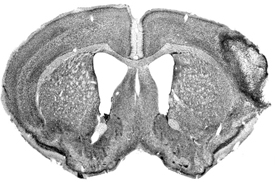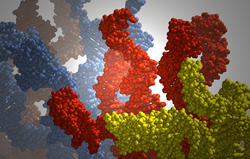Life Scientists Use Novel Technique to Produce Genetic Map for African Americans
UCLA life scientists and colleagues have produced one of the first high-resolution genetic maps for African American populations. A genetic map reveals the precise locations across the genome where DNA from a person’s father and mother have been stitched together through a biological process called “recombination.” This process results in new genetic combinations that are then passed on to the person’s children.
The new map will help disease geneticists working to map genetic diseases in African Americans because it provides a more accurate understanding of recombination rates among that population, said the senior author of the research, John Novembre, a UCLA assistant professor of ecology and evolutionary biology and of bioinformatics. The map could help scientists learn the roots of these diseases and discover genes that play a key role in them. (more…)



